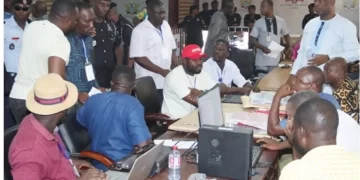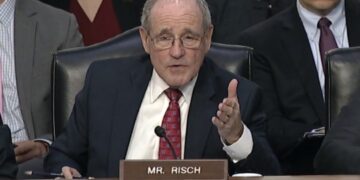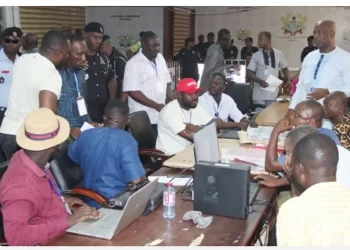 Ghana’s Minister for Communication, Digital Technology and Innovations, Hon. Samuel Nartey George, has issued a strong warning to the country’s mobile network operators to drastically improve the quality of their services by December 31, 2025 — or face stiff financial penalties, a portion of which will be used to directly compensate affected customers.
Ghana’s Minister for Communication, Digital Technology and Innovations, Hon. Samuel Nartey George, has issued a strong warning to the country’s mobile network operators to drastically improve the quality of their services by December 31, 2025 — or face stiff financial penalties, a portion of which will be used to directly compensate affected customers.
The directive was delivered during a high-level stakeholder meeting held on Friday, May 30, 2025, with chief executive officers and technical teams from Ghana’s major telecom providers — MTN, Telecel, and AT. The meeting followed a surge in public complaints over poor call quality, data issues, and general network unreliability, particularly in growing urban centres and key regional towns.
“We are not doing sentiments. We are doing engineering,” Sam George declared. “If you have infrastructure in place but your service is poor, we must begin to take regulatory action.”
The National Communications Authority (NCA) presented findings from a recent service performance assessment conducted in 48 localities across the country. The assessment measured four critical indicators — 3G Coverage, Call Setup Time (CST), Mean Opinion Score (MOS) for call quality, and 3G Data Throughput. The report revealed worrying inconsistencies across all three major operators.
Sam George, who is also the MP for Ningo-Prampram, specifically cited areas like Amasaman and East Legon as problematic zones where service quality has dipped sharply, despite network expansion. He further described some parts of Accra as experiencing network “blackouts” and subpar 4G coverage.
In response to the findings, the minister outlined a two-phase action plan. In the immediate term, telecom operators have until June 30, 2025, to complete the acceptance process for newly allocated spectrum and begin rolling it out. “We know you can’t complete upgrades in three months, but we must see that the process has begun. The Ghanaian people must feel the impact of the spectrum rollout by the end of this year,” Sam George stressed.
To ensure long-term accountability, a nationwide network quality test covering all district capitals will be carried out by the NCA in the third quarter of 2025. Should service quality remain poor, the government will take “decisive action.”
In a significant policy move, the minister announced that 40% of any fines imposed on non-compliant telecom operators will be returned to affected customers in the form of data or airtime bonuses.
The telecom executives also shared their plans to address the concerns:
Stephen Blewett, CEO of MTN Ghana, said the company had invested $230 million in 2024 to boost its network infrastructure and IT systems. He added that MTN will launch 300 new franchise outlets, hire 400 additional staff, and introduce new self-service tools for SIM swaps and PIN resets.
Mohamad Ghaddar, COO of Telecel Ghana, spoke about ongoing network optimisation and improved customer service. With over 400 retail shops already in operation, Telecel plans to add 100 more and continue supporting customers with special needs.
Leo Skarlatos, CEO of AT, noted that significant network upgrades are already in progress and their impact should be “clearly visible” by the first quarter of 2026. He encouraged stakeholders to observe the improvements for themselves.
The Minister also touched on the controversial issue of data pricing. He referenced a committee formed in February 2025 to devise a strategic plan for gradual reductions in data costs. Rather than quick price cuts, the strategy will focus on delivering better value to consumers without undermining network investments or market stability.
Sam George’s no-nonsense approach signals a new era of regulatory vigilance as Ghana’s digital economy continues to grow. With a firm deadline now in place, telecom operators will be under pressure to deliver tangible improvements — or pay the price.























